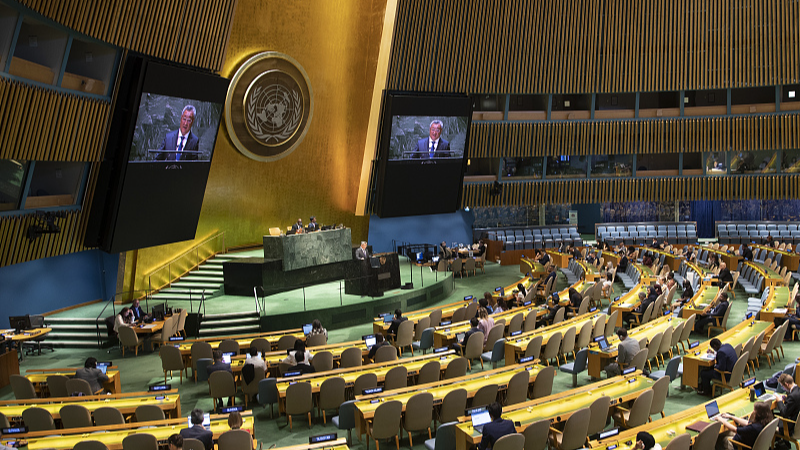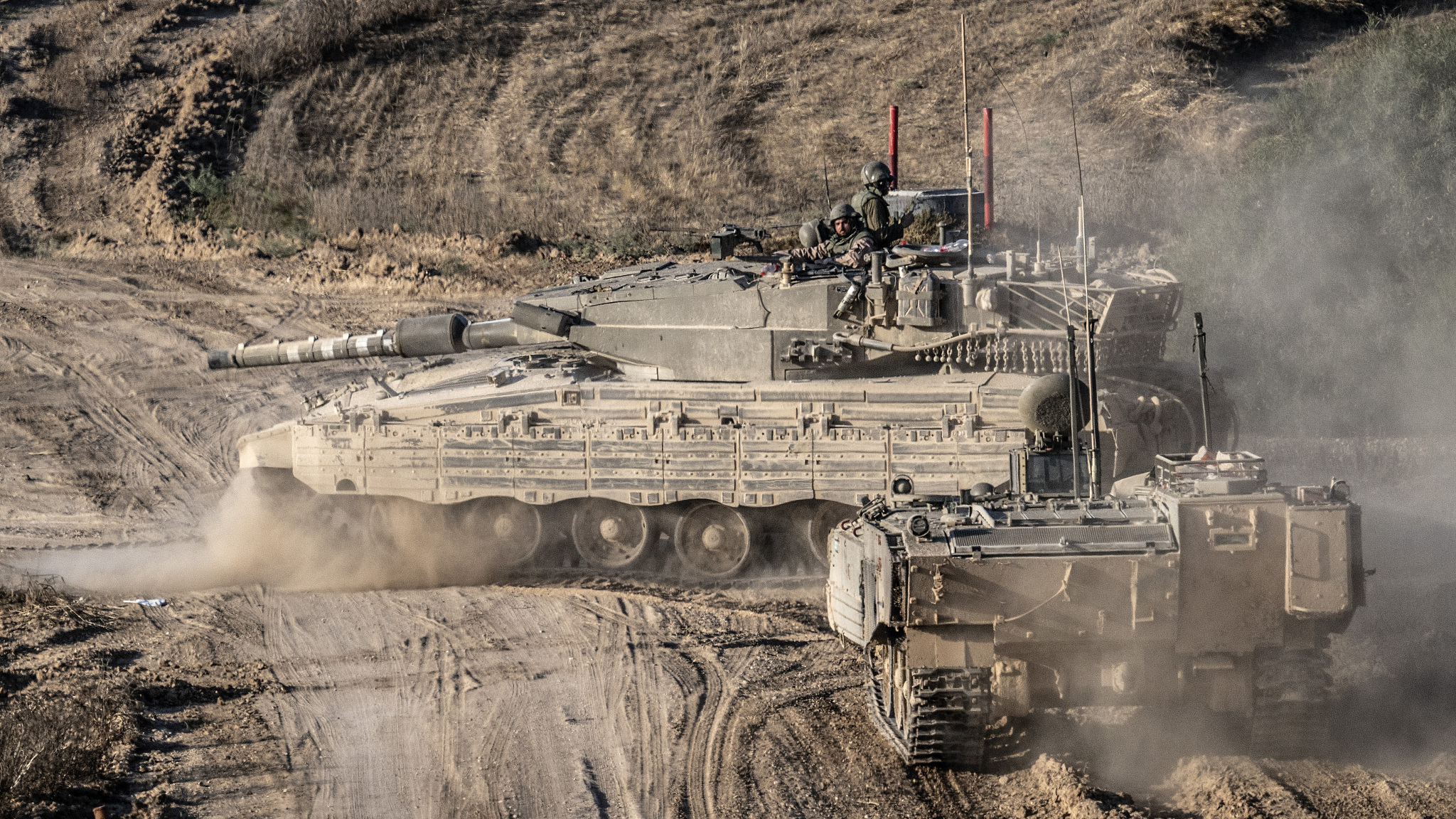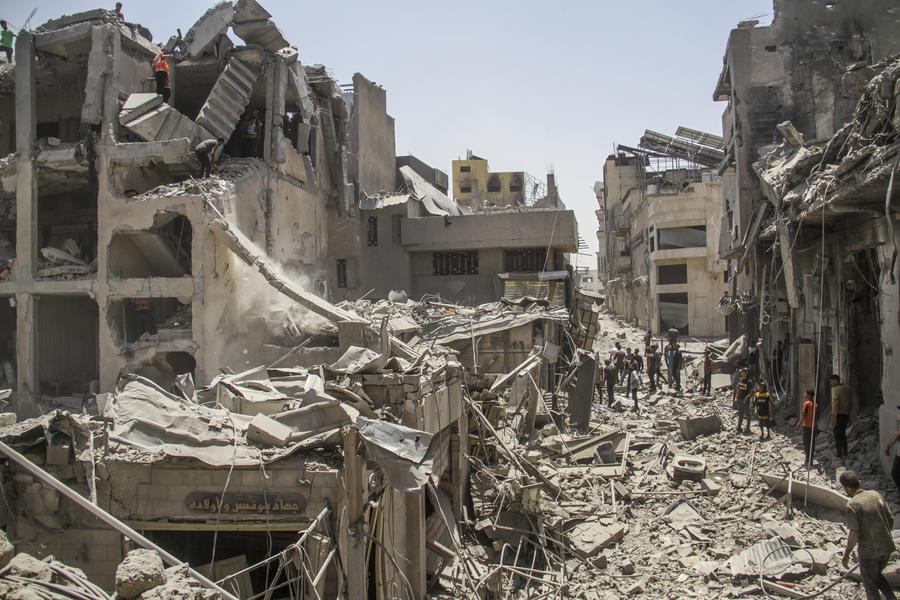Israeli Prime Minister Benjamin Netanyahu has authorized a delegation to engage in renewed negotiations with Hamas for a potential ceasefire and the release of hostages. The decision follows recent discussions with Qatari and Egyptian mediators and has received backing from the United States.
During a phone call on Thursday, President Joe Biden supported Netanyahu’s decision to engage in talks, emphasizing the importance of reaching an agreement, according to a readout of the conversation issued by the White House. Mossad chief David Barnea will lead the Israeli delegation, scheduled to travel to Qatar to meet with Qatari Prime Minister Mohammed bin Abdulrahman Al Thani, an Israeli official told The Times of Israel.
Israeli officials have expressed optimism about the new Hamas proposal, describing it as the most promising since the conflict began nearly nine months ago.
Despite progress in negotiations, internal political challenges pose risks to the deal. Far-right elements within Netanyahu’s coalition have threatened to withdraw support if the war concludes before their objectives are fully achieved. The Israeli response to the Hamas proposal, delivered through mediators, was notably different from previous instances during the nearly nine-month war in Gaza, where Israel had said the conditions attached by Hamas were not acceptable.
Hamas stated on Wednesday that it had consulted with the mediators about the proposed deal. “We exchanged some ideas with the mediator brothers to stop the aggression against our Palestinian people,” the group said in a statement.
The potential ceasefire deal represents a critical juncture in the conflict, offering a glimmer of hope amid the devastation and ongoing hostilities. This development also marks a renewed attempt to end the Palestinian-Israeli conflict that broke out in early October 2023, which has claimed over 38,000 Palestinian lives according to Gaza health authorities.
The humanitarian situation in Gaza remains dire. The death toll continues to rise, and essential services are on the brink of collapse due to fuel shortages. The Hamas-run health authorities have reported that in the past 24 hours alone, 58 Palestinians were killed and 179 injured. Many victims remain trapped under rubble, with rescue efforts hampered by the ongoing conflict.
Saudi Arabia’s humanitarian agency, King Salman Humanitarian Aid and Relief Centre (KSRelief), has faced significant obstacles in delivering aid due to the closure of the Rafah crossing. Hundreds of trucks loaded with food and medical supplies are stuck, with fears that the perishable items may spoil before reaching those in need. Abdullah al Rabeeah, head of KSRelief, has urged Israel to lift the restrictions and allow the aid to reach Gaza.
In parallel, Israel’s actions in the West Bank have exacerbated tensions. The Israeli government has approved plans to construct 5,295 new settler homes, a settlement monitoring group said on Thursday.
The move came a day after Israeli authorities approved the appropriation of 12.7 square kilometers of land in the Jordan Valley, marking the largest single appropriation since the 1993 Oslo accords. UN spokesperson Stephane Dujarric called it “a step in the wrong direction,” emphasizing the need for a negotiated two-state solution.
In 2024, Israel has designated approximately 23.7 square kilometers of West Bank territory as “State Lands,” according to Peace Now, an Israeli settlement watchdog. This bureaucratic process allows the Israeli government to nullify Palestinian ownership rights over the declared lands, allowing the land to be leased exclusively to Israelis for settlement expansion.
Israel captured the West Bank during the 1967 Middle East war and has since expanded its settlements in the region.
Furthermore, the conflict has extended to the Lebanese border, where Israeli forces have launched air strikes in response to Hezbollah attacks. Hezbollah fired at least 175 rockets, missiles and drones at northern Israel, retaliating for the assassination of a senior commander by Israeli forces.
The Israel Defense Forces (IDF) reported that their aerial defense systems intercepted several of these projectiles, although some caused damage and fires in northern Israel. The situation remains volatile, with both sides exchanging heavy fire.
The ongoing conflict has severely impacted tourism in Israel. According to the Central Bureau of Statistics, the number of foreign tourists visiting Israel dropped by 74.9 percent in the first half of 2024 compared to the same period last year. The outbreak of violence in October 2023 has deterred tourists, with monthly arrivals plummeting since then.
Source(s): CGTN

 Business6 days ago
Business6 days ago
 News6 days ago
News6 days ago
 Sports4 days ago
Sports4 days ago
 Sports6 days ago
Sports6 days ago
 Sports5 days ago
Sports5 days ago
 News3 days ago
News3 days ago
 Sports6 days ago
Sports6 days ago
 News5 days ago
News5 days ago


















